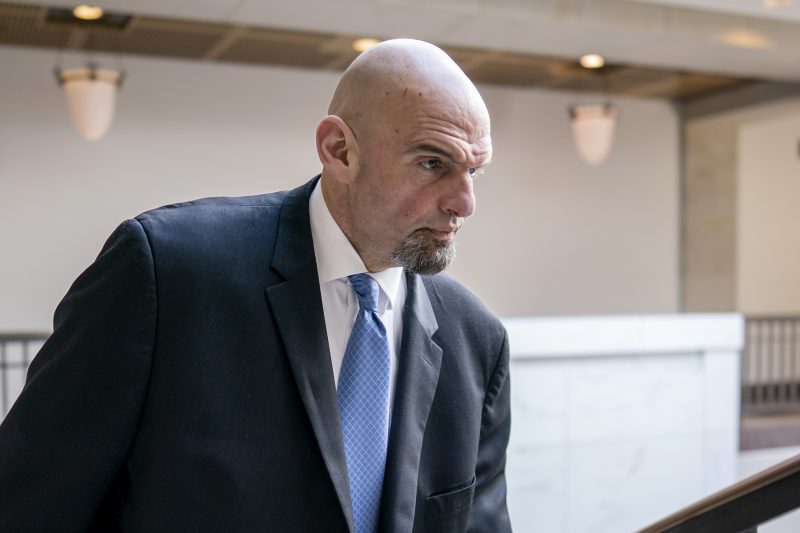A previous version of this article incorrectly stated Fetterman checked himself into the hospital on Feb. 16. It was Feb. 15. The article has been corrected.
Sen. John Fetterman (D-Pa.) has been discharged from the hospital and his depression is now in remission, his office said Friday.
Fetterman, 53, had been receiving treatment for his mental health at Walter Reed National Military Medical Center since Feb. 15, when he voluntarily checked himself in after being evaluated by the attending physician of Congress, Brian P. Monahan. Monahan suggested that Fetterman receive inpatient care for depression that had become “severe in recent weeks,” Fetterman’s chief of staff, Adam Jentleson, said in a statement at the time.
In a statement Friday, Fetterman’s office announced that he’d completed treatment for “major depression,” under the care of a team led by David Williamson, the hospital’s neuropsychiatry chief.
“According to Dr. Williamson, Senator Fetterman’s depression is now in remission,” Fetterman’s office said in a statement. “With the Senate in recess for the next two weeks, Senator Fetterman will spend time with his family and constituents in Pennsylvania, and return to Washington, D.C. when the Senate session resumes on April 17th.”
In the statement, Fetterman said he’s “so happy to be home.”
“I’m excited to be the father and husband I want to be, and the senator Pennsylvania deserves. Pennsylvanians have always had my back, and I will always have theirs,” he said. “I am extremely grateful to the incredible team at Walter Reed. The care they provided changed my life.”
Fetterman said he’ll have “more to say about this soon.”
“But for now I want everyone to know that depression is treatable, and treatment works,” he said. “This isn’t about politics — right now there are people who are suffering with depression in red counties and blue counties. If you need help, please get help.”
On Sunday, CBS will air an interview with Fetterman — his first since he first checked himself in for care. A preview of the conversation between the senator and Jane Pauley of “CBS Sunday Morning” shows Fetterman speaking candidly about his depression, and how it was exacerbated by his November win in Pennsylvania’s tight Senate race.
“It’s like … you just won the biggest, you know, race in, in the country,” Fetterman told Pauley. “And … the whole thing about depression is, is that objectively, you may have won. But depression can absolutely convince you that you actually lost. And that’s exactly what happened.”
That, he said, was the start of “a downward spiral.” Fetterman said that, in the interim between winning the election and being sworn in to Congress, his depression gained strength.
“I had stopped leaving my bed,” he said. “I had stopped eating. I was dropping weight. I had stopped engaging some of the … things that I love in my life.”
Fetterman’s depression followed a near-fatal stroke he suffered in May, just days before he overwhelmingly won the Democratic primary in Pennsylvania’s Senate race.
Fetterman’s expected return to the Senate will be welcome news for Senate Democrats, who have struggled to advance some of President Biden’s judicial nominees during Fetterman’s absence. Sen. Dianne Feinstein (D-Calif.), who is a member of the Judiciary Committee, has also been absent for weeks after a bout of shingles. The Senate begins a two-week recess Monday.



























